13.09.2018 – 03.03.2019
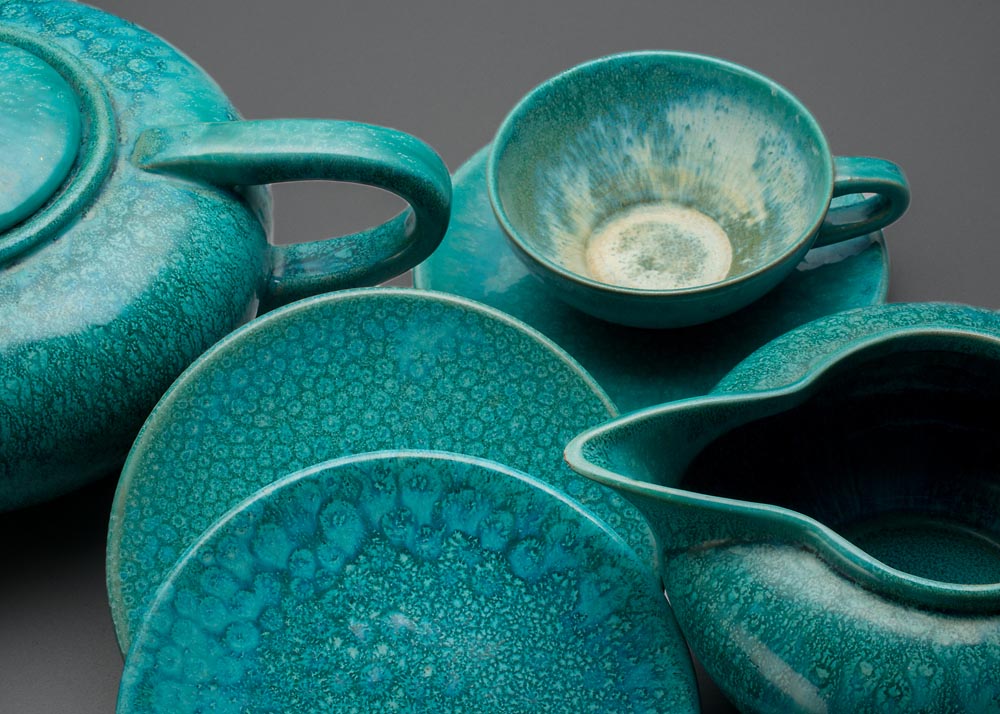
čajová a kávová souprava, 1927
Krásná jizba [Beautiful Room], established as a branch of the Družstevní práce [Cooperative Work; dp] publishing house in the late 1927, was one of the leading Czech institutions in the fields of interior design and culture during the first half of the 20th century. It became a platform for asserting the principles of Functionalism and implementing requirements on the quality of the mass production of utility objects. It operated as an arbiter of practical and tasteful living and, with its sales, production, exhibition and consulting activities, permeated the everyday life of thousands of families. Via the production and selling of home accessories and furnishings, characteristic of high aesthetic and utility value and, simultaneously, affordability, Krásná jizba aimed at fulfilling democratic principles in the culture of living. The focus of the institution and its upswing were the merit of the leading figures of the contemporary cultural scene, such as the designers Ladislav Sutnar, Antonín Kybal, Ludvika Smrčková and Bohumil Južnič, the architect Jan E. Koula, the photographer Josef Sudek, and many others. However, it did not manage to continue in its successful First-Republic era after the war, and the ultimate end of the initial ideas came with the changed political orientation of the country in 1948.
In the 1920s and 1930s, faith in the new life, characteristic of the avant-gardes in general, went hand in hand with highlighting the integration of aesthetic requirements and the factual realization of life within a social and ethical context. The main attention was thus seized by
the question of lifestyle, encompassing a wide range of issues which were surfacing with the vision of a new lifestyle and society and were related to many spheres – from living to working, education and health and, finally, culture and leisure time. The aim was to improve the quality of life of individuals in accordance with the goals of a socially-oriented
democratic society. The essential task after the First World War was to fulfill the elementary need of housing, and architects, theoreticians and social engineers often answered it with utopian and radical concepts.
It took Krásná jizba less than a year to abandon its initial focus on meeting the aesthetic needs of its customers through the primary sale of objects of art and, instead, switch to the culture of living and the sale of home accessories and furnishings. One of the stimuli behind this change was the Brno 1928 Exhibition of Contemporary Culture, which clearly demonstrated its focus on utilitarian Functionalist aesthetics and industrial production at the display of Association of Czechoslovak Work as well as other participating manufacturers. Nothing but this orientation could meet the goals of providing quality to the wider masses in the form of standardized products which would exclusively follow function. In accordance with the ethical background of the popular theses forged by Adolf Loos, strictly condemning ornamentation, designers laid great emphasis on the purity of shapes close to ideal geometric solids, and on simple form unburdened by anything that would excessively increase production costs. The most important aspects now became the natural quality of materials and their surfaces and structures and the typical features of the production process, all embodying the only acceptable source of aesthetic impression. As soon as KJ became headed by Ladislav Sutnar, it turned into an institution implementing these ideas
and requirements into everyday life, mainly via his own designs of drinking and dining sets which have since become iconic artifacts of local inter-war design and the most sought-after items of its range.
The Museum of Decorative Arts – main building
17. listopadu 2
110 00 Prague 1
Opening Hours
Wednesday – Sunday 10 a.m.–6 p.m.
Tuesday 10 a.m.–8 p.m.
Monday closed
Addmission
full CZ 150 | concession CZ 80 | family CZ 250

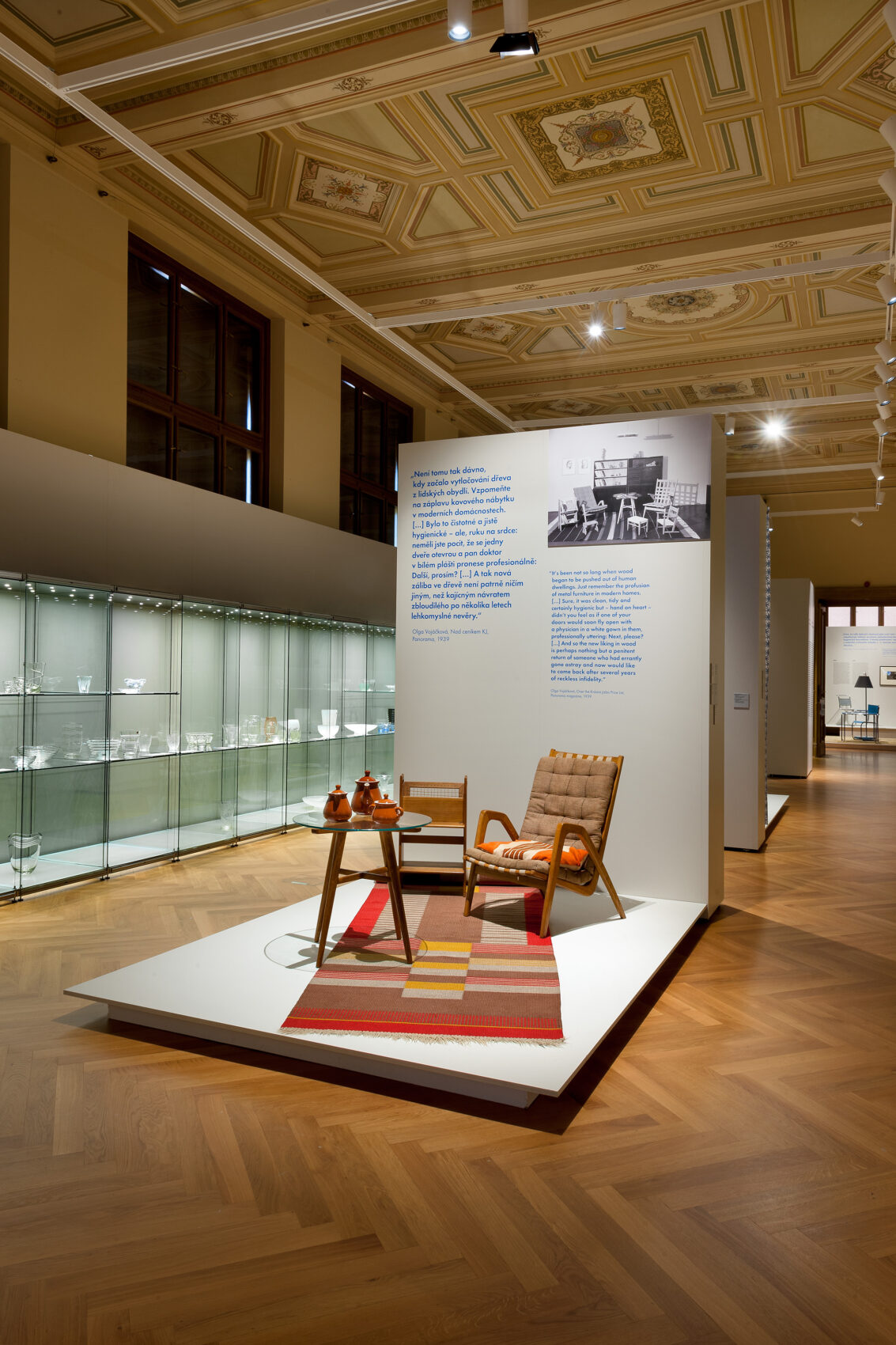
Exhibition Krásná jizba DP 1927-1948 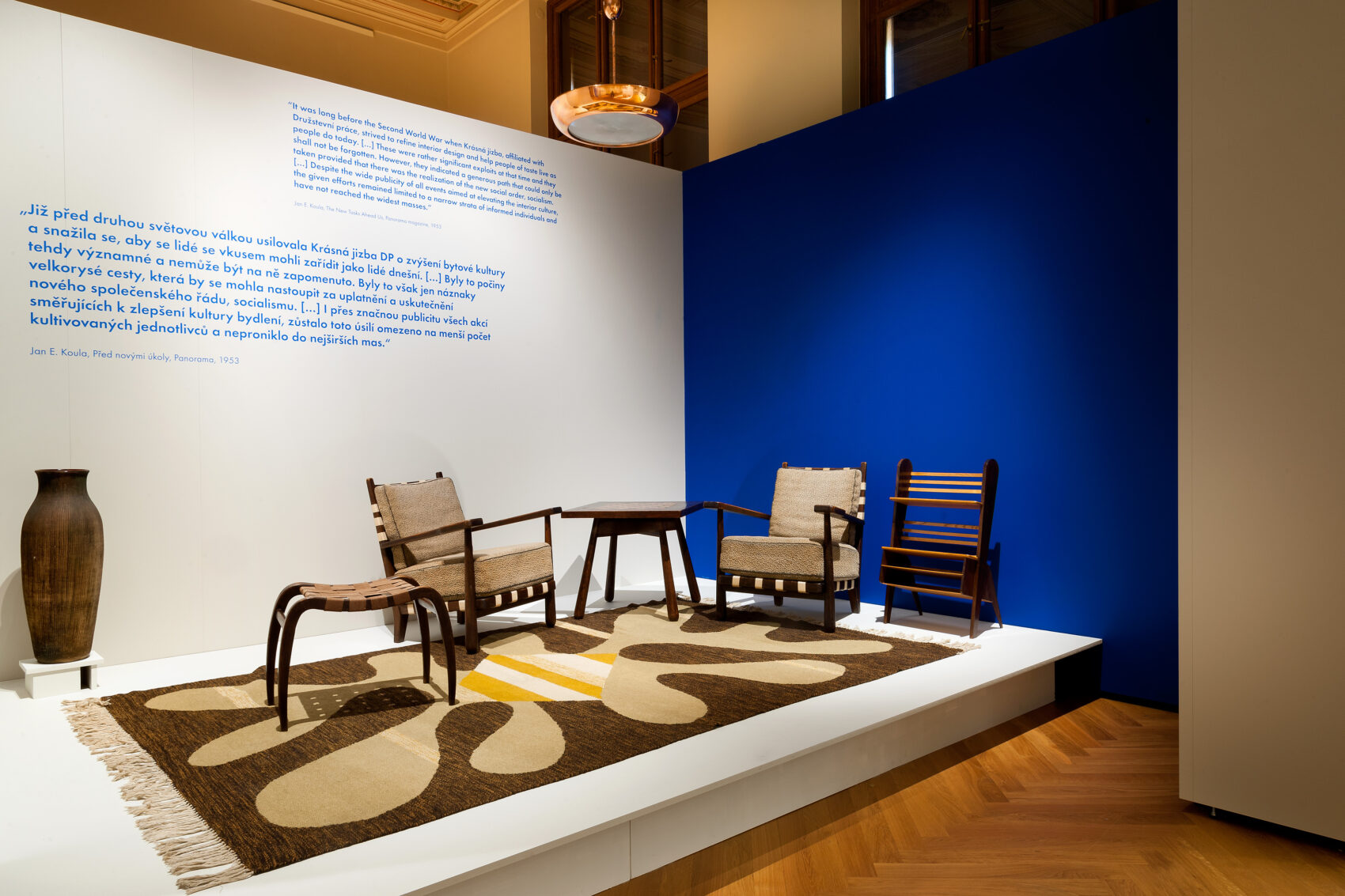
Exhibition Krásná jizba DP 1927-1948 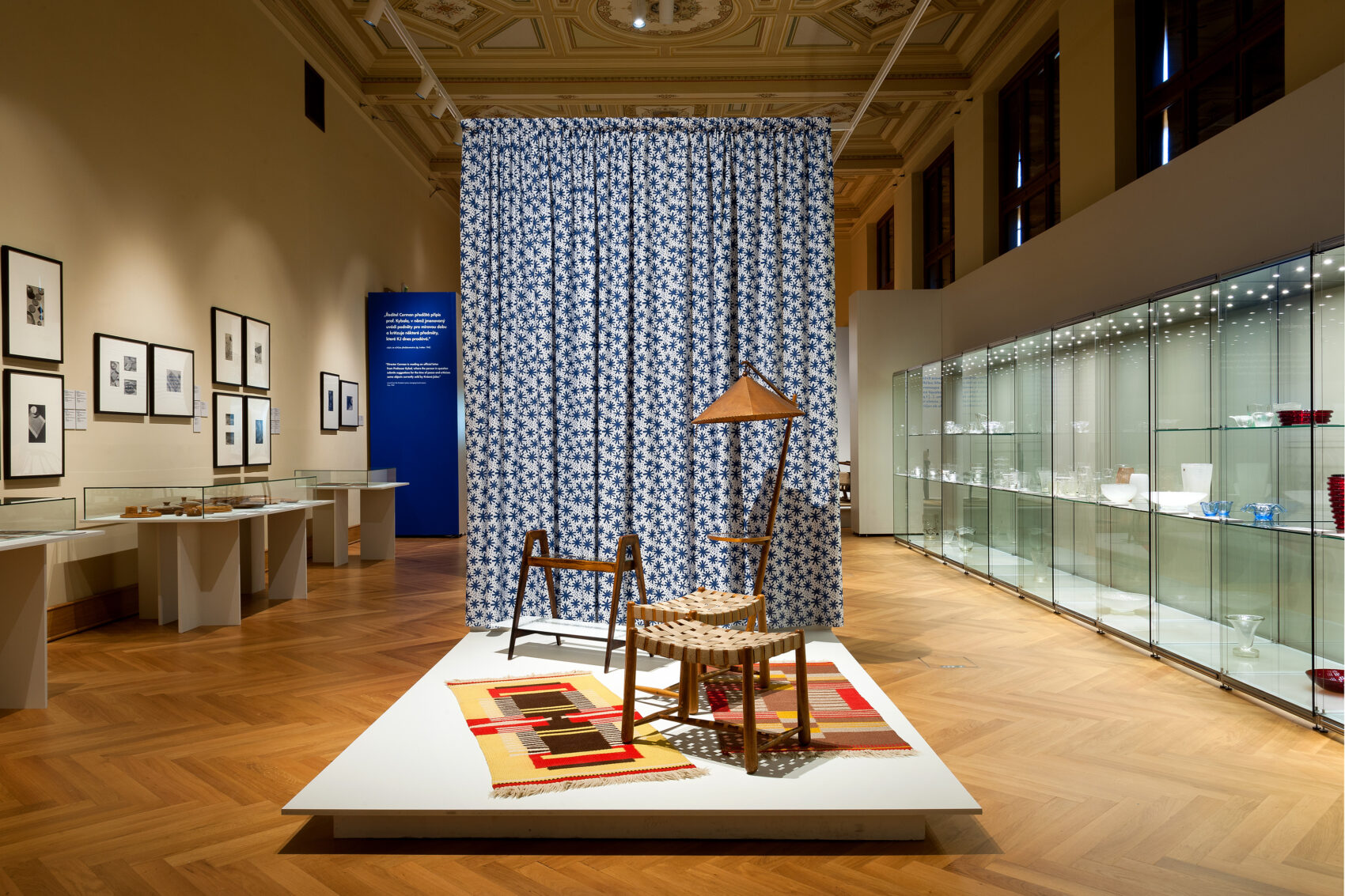
Exhibition Krásná jizba DP 1927-1948 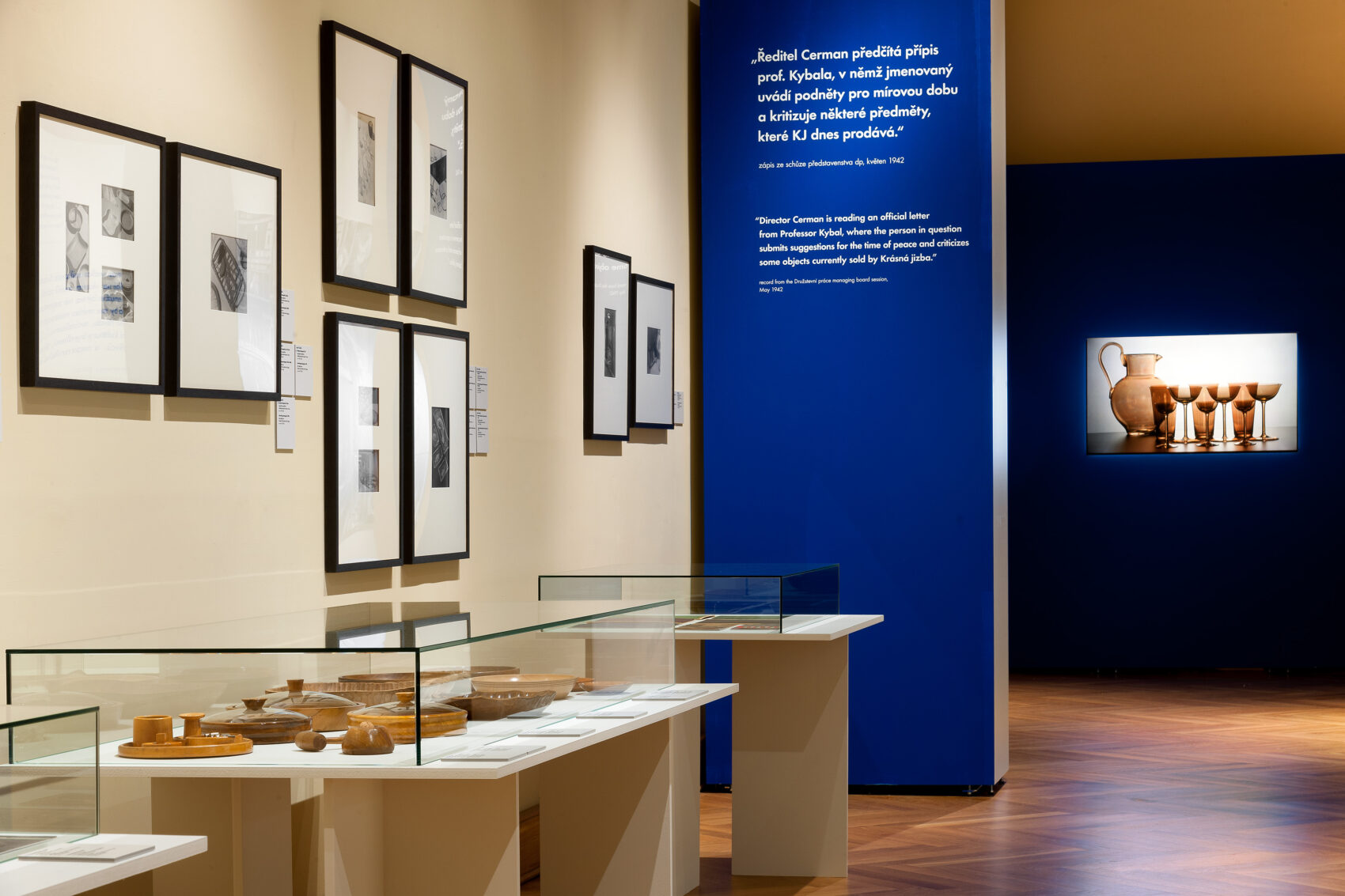
Exhibition Krásná jizba DP 1927-1948 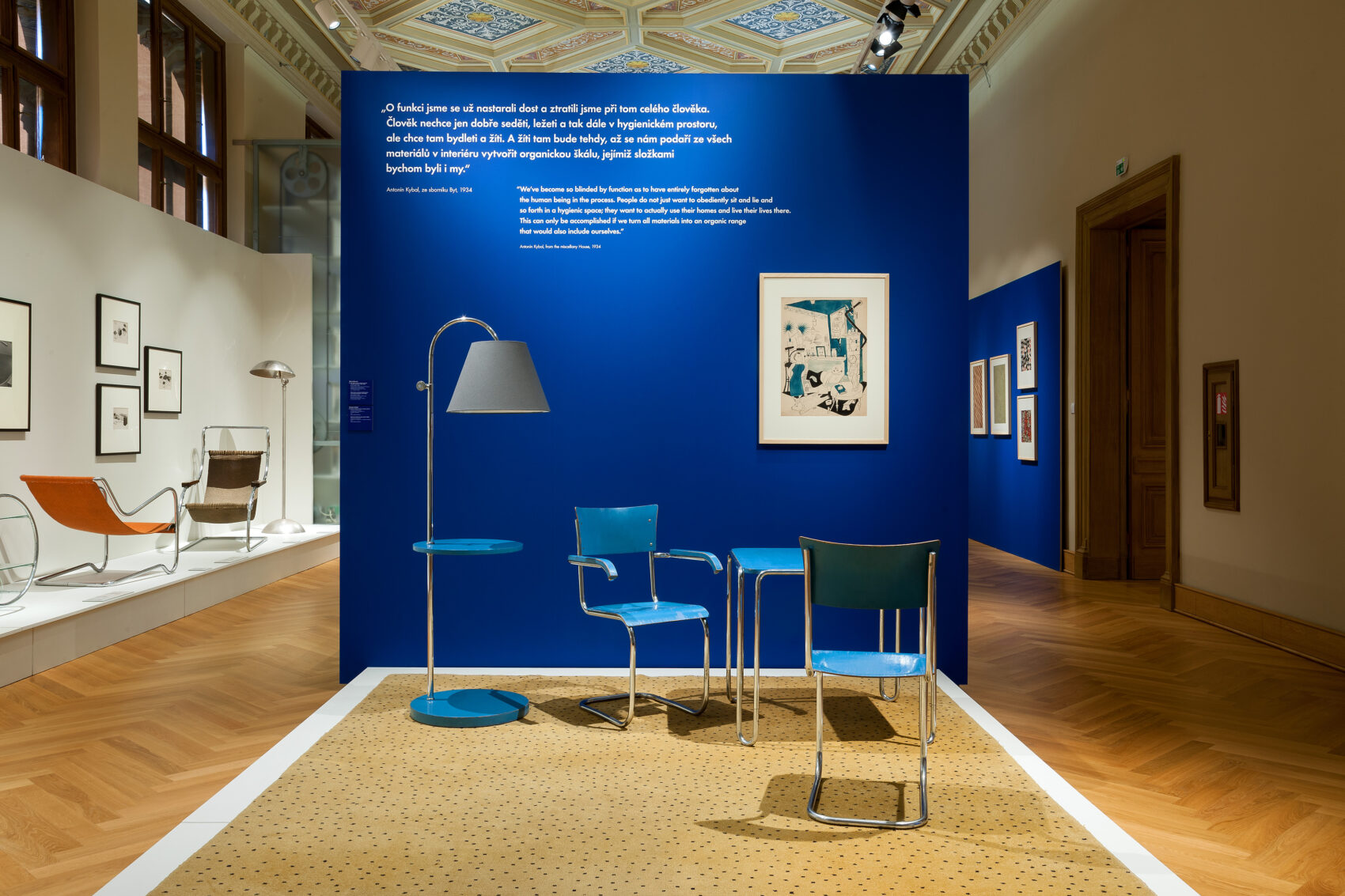
Exhibition Krásná jizba DP 1927-1948 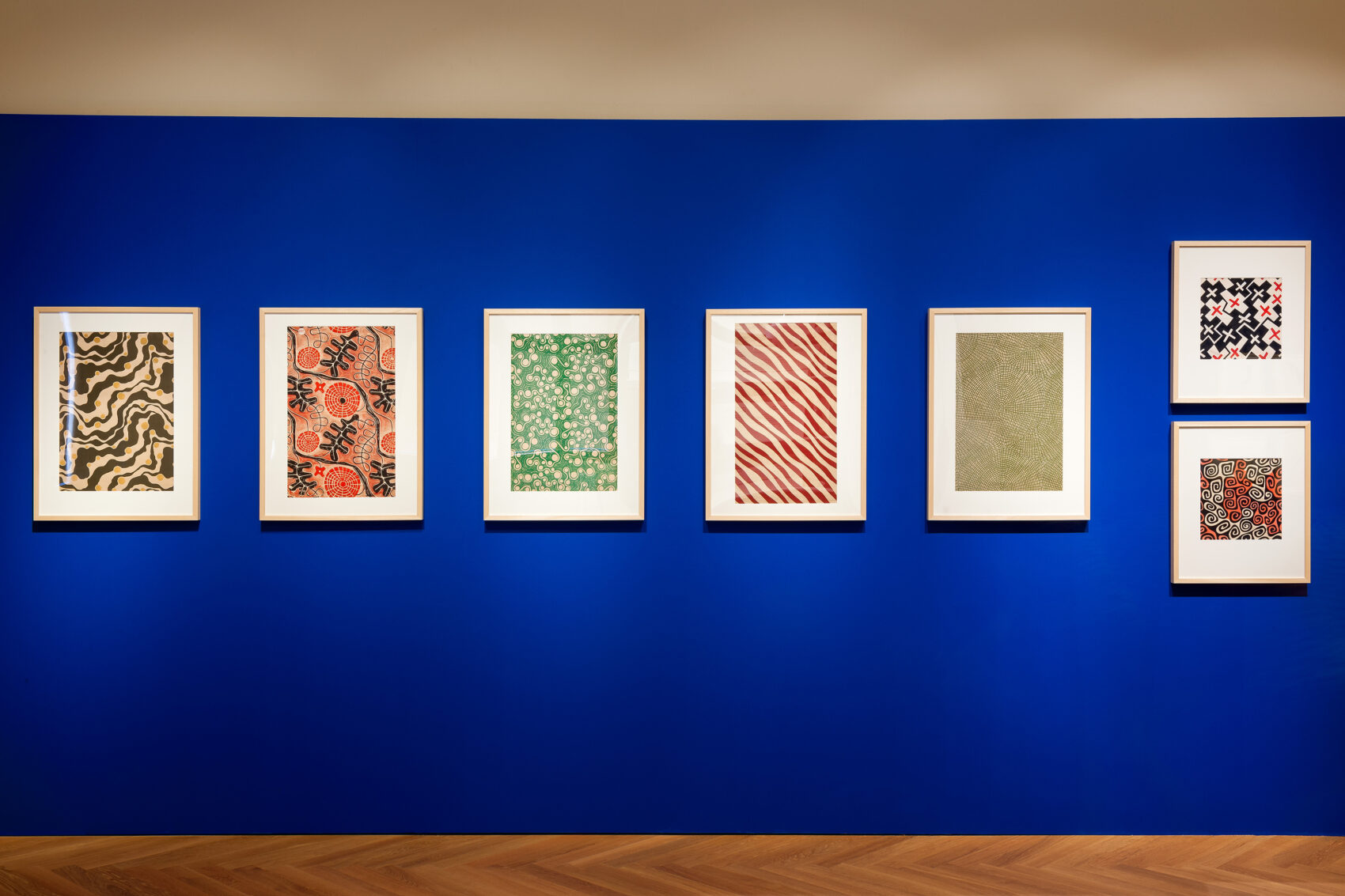
Exhibition Krásná jizba DP 1927-1948 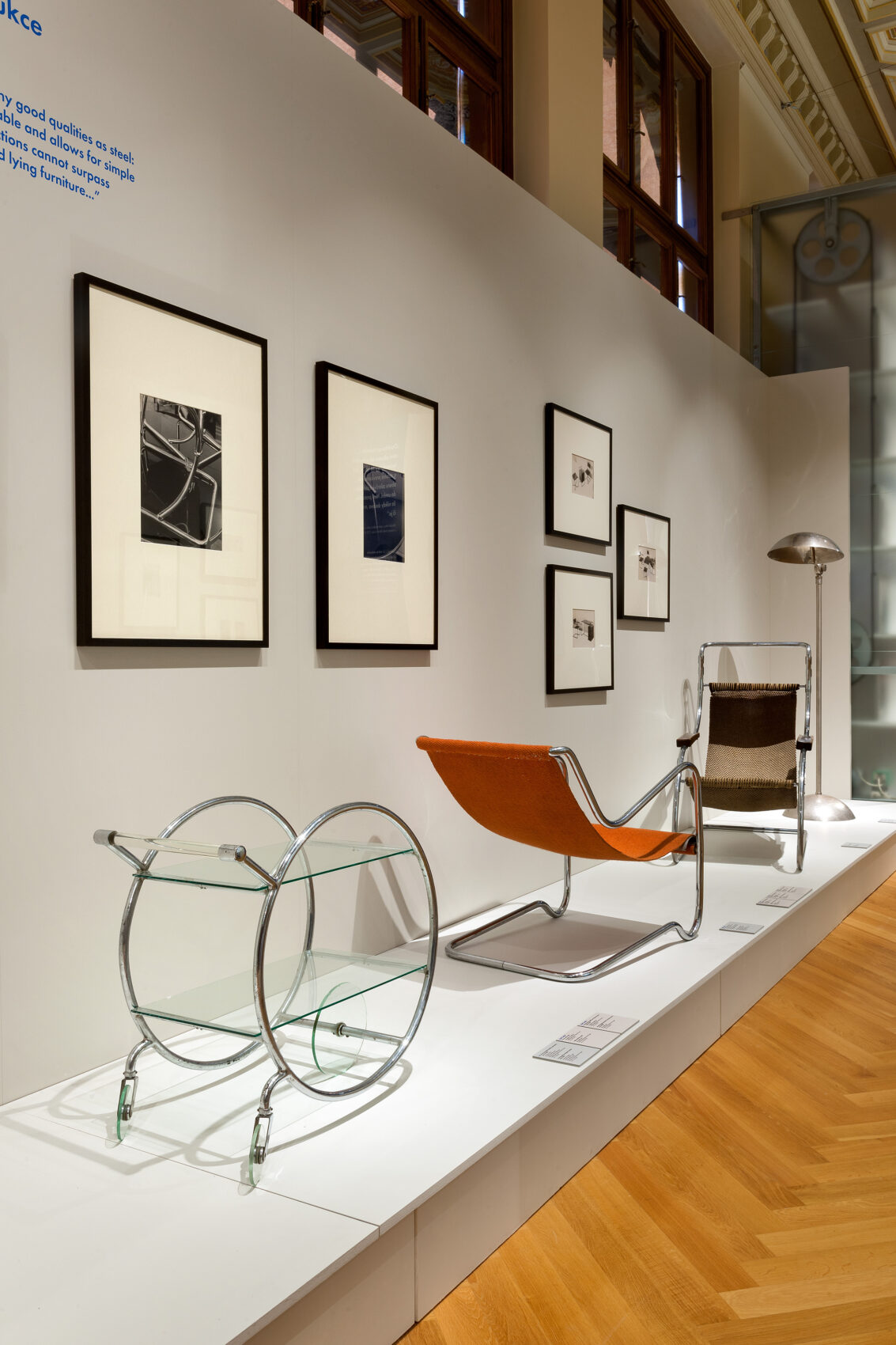
Exhibition Krásná jizba DP 1927-1948 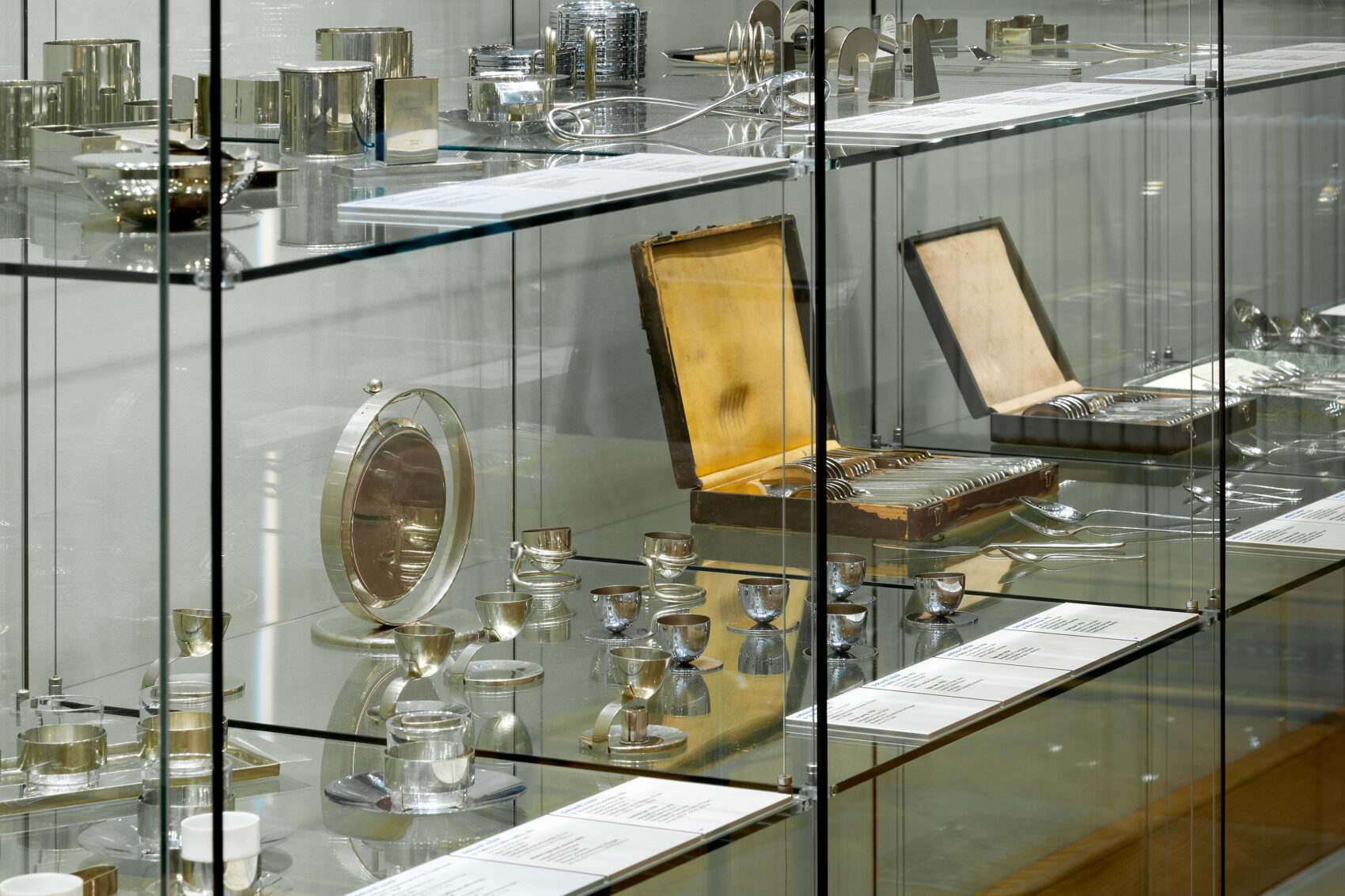
Exhibition Krásná jizba DP 1927-1948 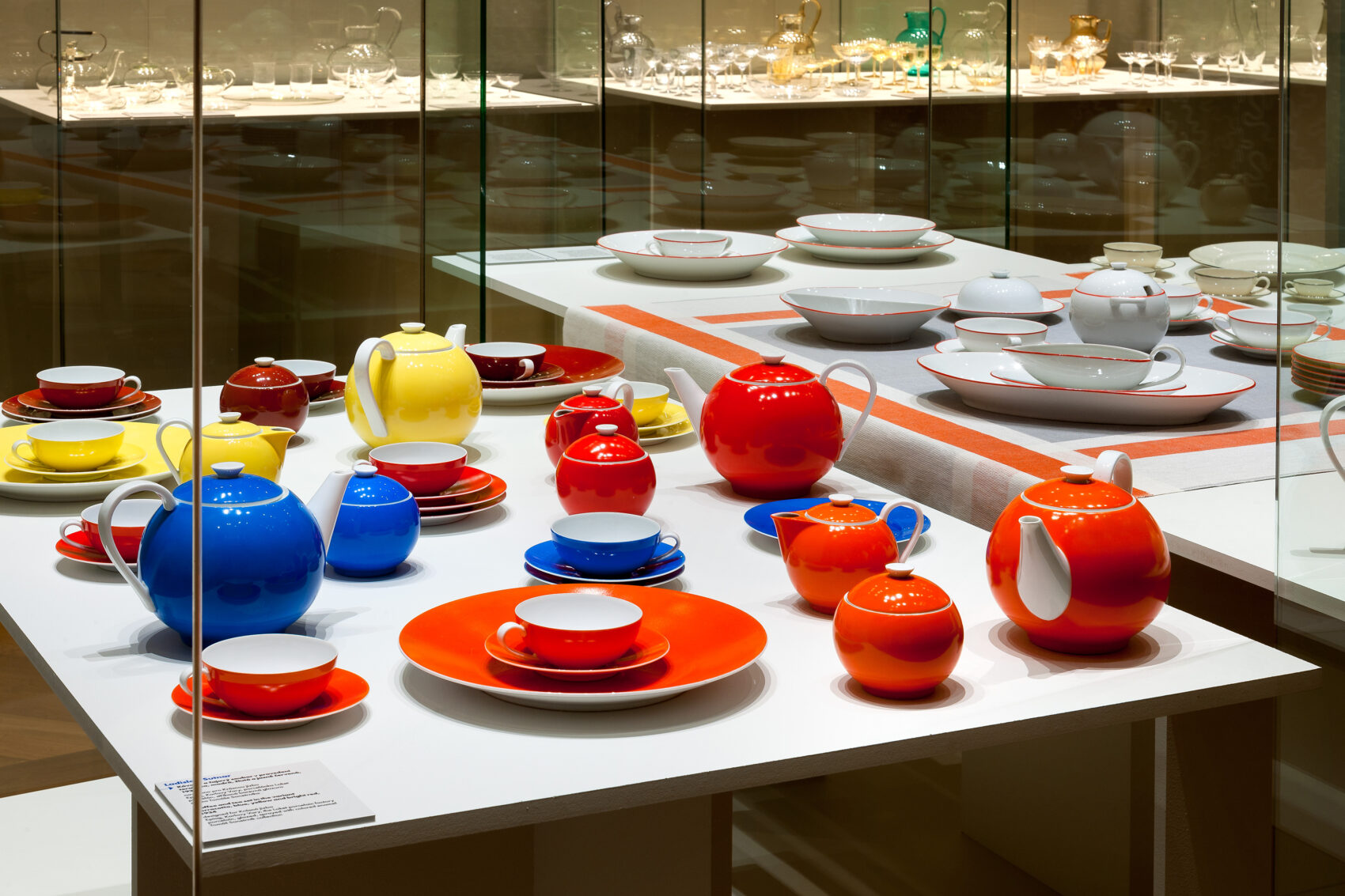
Exhibition Krásná jizba DP 1927-1948 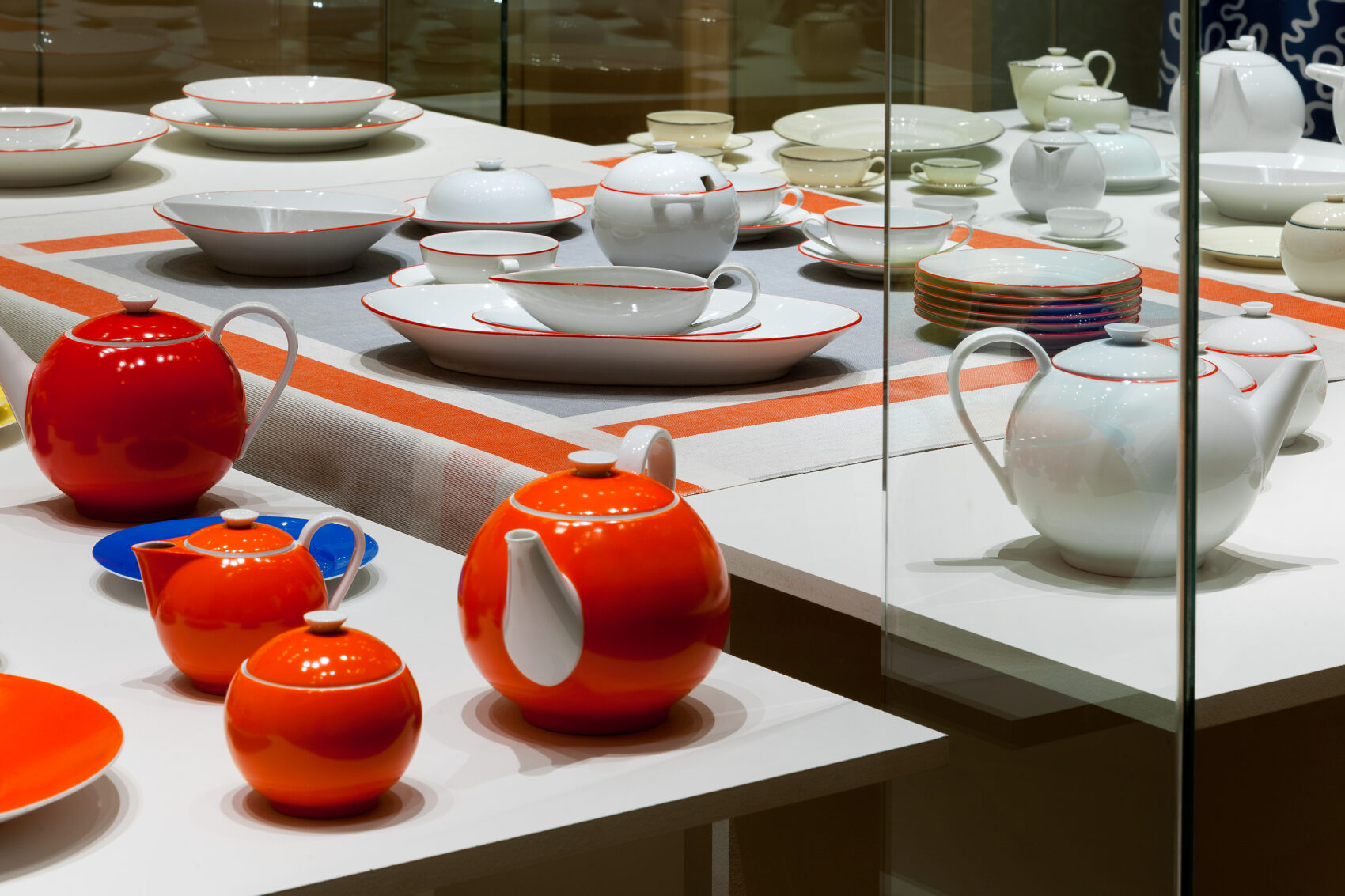
Exhibition Krásná jizba DP 1927-1948